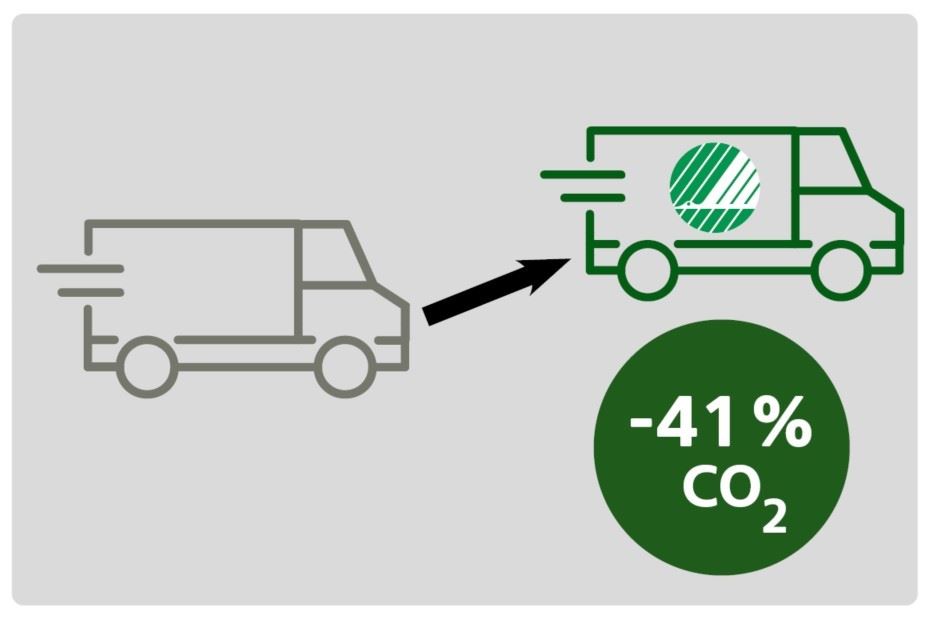The Nordic Swan Ecolabel reduces climate impact from e-commerce transports
The Nordic Swan Ecolabel’s criteria for e-commerce logistics result in major savings in greenhouse gas emissions due to requirements on the vehicle fleet and on renewable energy. The reduction is at least 41%.
An analysis of the climate benefit by choosing a Nordic Swan Ecolabelled delivery when shopping online has been carried out. The analysis is based on three different requirements in the criteria for e-commerce logistics:
- Existing truck fleet,
- New vehicles,
- Renewable energy

The analysis compares Nordic Swan Ecolabelled e-commerce logistics to a fictitious company assumed to have a vehicle fleet and a fuel mix that corresponds to the national average. The climate benefit consists of the improvements the fictitious company needs to make to meet the requirements.
The result show that The Nordic Swan Ecolabel contributes to a significant reduction of the transport company´s climate impact. In order to meet the requirement levels of the Nordic Swan Ecolabel the fictitious company in each Nordic country needs to take measures linked to the vehicle fleet and fuels. The measures are calculated to reduce the climate burden by an average of 41%.
The largest effect on greenhouse gas emissions is achieved through the requirement on renewable energy, which has a significant impact on emission reduction. The requirements on electric vehicles and vehicles running on biogas also contributes significantly. In practice, the effect is even greater since other requirements such as energy efficiency, eco-driving and route optimization also contribute.
Not only requirements relating to the climate impact
The Nordic Swan Ecolabel’s criteria include a number of other requirements which also have an impact on the environment and social issues. The requirements below are not included in the climate analysis calculation, however they are important from a holistic view of Nordic Swan Ecolabel e-commerce logistics.
- Promotes better working conditions in line with national labour law standards.
- More time to optimize the logistics system by limiting same-day deliveries.
- Ban on palm oil or its biproducts (PFAD) in biofuel.
- Contributes to less bulky packaging
The analysis is carried out by Mårten Sjölin at Sjölin & Löfgren AB and is based on the Nordic Swan Ecolabel criteria for e-commerce logistics, generation 1.2.